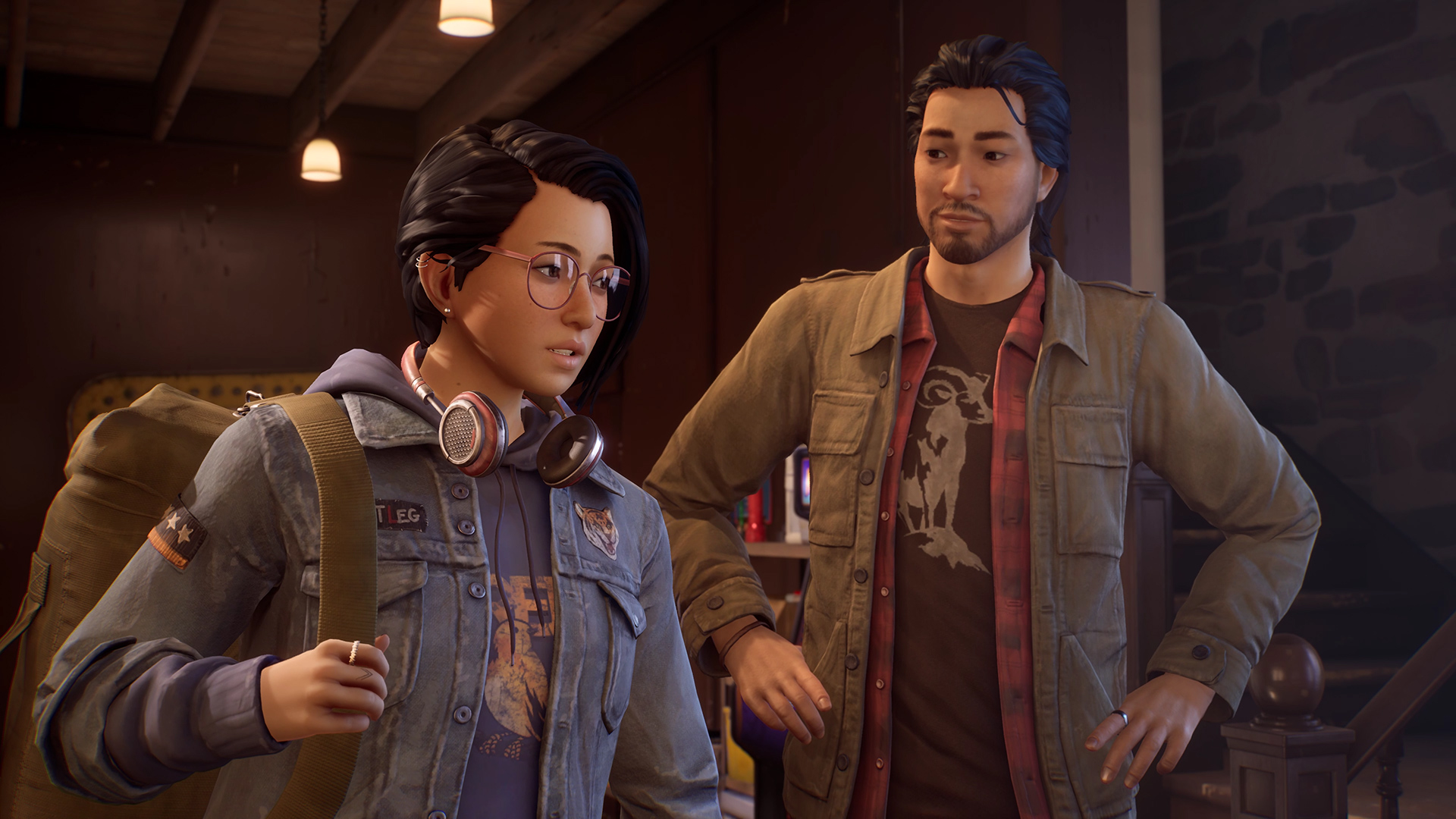Square Enix reportedly didn't want Life is Strange: True Colors to be thought of as the 'gay game'
A new report sheds light on toxicity and conflict at Life is Strange: True Colors studio Deck Nine.

A new IGN report on Life is Strange: True Colors studio Deck Nine contains numerous allegations of dysfunction at the studio, as well as the surprising claim that publisher Square Enix was reluctant to embrace the series' underlying themes—to the point that it told the studio it didn't want Life is Strange to become known as the "gay game."
The first Life is Strange game, released episodically through 2015, was developed by Dontnod, as was the sequel, Life is Strange 2, which came out in 2018. Deck Nine created the 2017 prequel, Life is Strange: Before the Storm, and the 2021 followup, Life is Strange: True Colors. It's a bit of an unusual situation—kind of like an Infinity Ward/Treyarch back-and-forth, but for narrative adventures rather than military shooters—but all of the games in the series have been acclaimed for their adept storytelling and characters.
True Colors, the most recent addition to the series, is a critically-acclaimed game about a young woman named Alex whose empathic abilities enable her to feel and even absorb the feelings of others around her. It's heavy stuff, but also very well handled: "It's a story that lets a young queer woman unashamedly cry, scream, and experience joy free from shame, and that's something incredibly special," we said in our 86% review.
Pride felt the same way, calling it "the must-play queer game of 2021," while GLAAD awarded it the Outstanding Videogame at the 33rd GLAAD Media Awards. Fair to say, then, that it's a pretty queer game.
That apparently was an outcome Square Enix was eager to avoid. The publisher was very hands-on with the script, according to the report, and multiple sources told IGN that Square Enix told the developers they didn't want True Colors to be thought of as the "gay game."
In part of a statement provided to IGN, Deck Nine said that it is committed to "championing diversity."
"Storytelling is a collaborative process, and we work closely with all of our partners throughout development to deliver a narrative experience true to the pillars of a product that we are all proud of," said the studio, "As is often the case in the creative process, some ideas make the final cut, and some do not. We remain committed to championing diversity and telling stories from historically underrepresented groups in games."
Keep up to date with the most important stories and the best deals, as picked by the PC Gamer team.
Life is Strange: True Colors won numerous awards for its narrative and performances, and is properly celebrated for its unabashedly positive representation of queer characters. If Square Enix wanted to avoid that characterization, it suggests either a complete misunderstanding of the game, or an intentional hostility toward it. Either way, it seems remarkable that True Colors ultimately emerged as strongly as it did.
That's especially true given the other challenges faced by employees of Deck Nine cited in the report, which includes allegations of toxicity from senior developers and indifference toward it from management, weeks of crunch driven by tight deadlines and small budgets, and the bizarre, unexplained appearance of racist memes and Nazi symbols in a new Life is Strange project.
Deck Nine also suffered layoffs in February, leaving the studio with just over half the headcount it had during the development of True Colors. It's an impressively detailed account of a studio that's struggling but producing admirable work regardless—you can read the whole thing at IGN.

Andy has been gaming on PCs from the very beginning, starting as a youngster with text adventures and primitive action games on a cassette-based TRS80. From there he graduated to the glory days of Sierra Online adventures and Microprose sims, ran a local BBS, learned how to build PCs, and developed a longstanding love of RPGs, immersive sims, and shooters. He began writing videogame news in 2007 for The Escapist and somehow managed to avoid getting fired until 2014, when he joined the storied ranks of PC Gamer. He covers all aspects of the industry, from new game announcements and patch notes to legal disputes, Twitch beefs, esports, and Henry Cavill. Lots of Henry Cavill.

